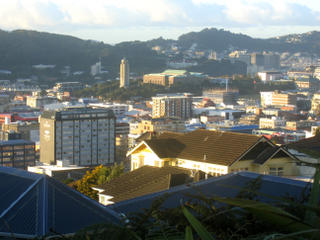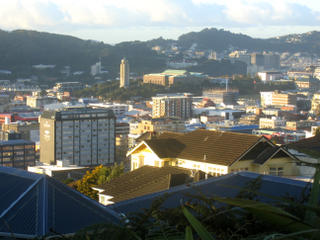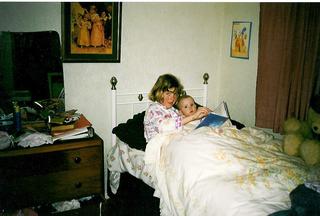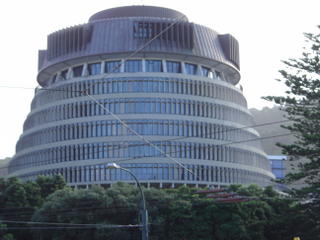Three out of every ten NZ children live in poverty.
It seems hard to believe in a country as wealthy as New Zealand, but that alarming statistic I’ve just quoted is the official line today, and it manifests itself in very real, very sinister outcomes for New Zealand children.
I would like to build some parameters around the concept of poverty in New Zealand before briefly advancing reasons why poverty in our nation is unacceptable.
First there is the sustainability argument. We need to invest in our children, as a valuable resource.
Secondly, there is the human rights argument. Children have the right to a healthy happy childhood.
Finally, I will touch on how effective the working for families package may prove, in light of how child poverty has been tackled in other countries.
Poor kids in rich countries???
So first, what does ‘poverty’ mean in New Zealand, what does it mean to you? Perhaps you conceive of poverty in the absolute sense, which conjures the image of a small infant from sub-Saharan Africa with a bloated stomach, flies on his face and a haunted look in his eyes.
Relative poverty isn’t immediately as tangible to those that aren’t in its grasp; it is difficult to define and highlights the ever-widening income disparities in New Zealand that politically, isn’t very palatable. Perhaps that is why it wasn’t until this document, The Agenda for Children was published in 2002, that the government officially acknowledged the level of poverty amongst our children. In here, three out of ten NZ children are identified as living in families with incomes below 60 percent of the median, adjusted for housing costs.
Want something more concrete?
The Auckland City Mission’s foodbank parcel numbers have doubled since 1998. This is over 100,000 food parcels, enough to feed a family for four days, distributed annually in that region alone.
A recent study of 400 low-income families showed over half of them had experienced being unable to visit a doctor or pay for prescriptions in the previous year due to cost. The government only subsidises doctor’s visits for those under six, and some practices charge above the subsidy.
Access to healthcare is even more concerning considering NZ has high rates of third world illnesses such as meningococcal disease, rheumatic fever, pneumonia and chronic lung infection. The rate of meningoccocal disease in South Auckland and Northland is in fact the highest in the industrialized world.
Poverty in New Zealand means many low-income families are spending more than half of their income on housing costs. The lack of affordable housing results in overcrowding, leaving children more susceptible to the communicable diseases I just mentioned.
So that is what poverty means to a third of our children. What are the reasons for rejecting these truths as inevitable?
Sustainability - coping with an aging population
In the Agenda for Children MSD acknowledges the sustainability issues raised by child poverty in NZ. Poverty during childhood has been proven detrimental to a child’s development with consequences for health, educational achievement and, if you want to cut to the chase, their employment opportunities and earnings in later life. These kids are the ones who will support the baby boomers in their twilight years. We can’t afford not to invest in them.
UNCROC From a human rights perspective, NZ is a party to the UNCROC and as such is obliged to develop and undertake all actions and policies in light of the best interests of children. UNCROC is the most universally accepted human rights instrument in history and has been ratified by every country except two – the United States and Somalia. There is international acceptance that the rights of children, including social and economic rights, need to be protected.
However, they are dependent on others, adults, to give effect to their needs.
Child impact reporting is one way NZ can realize its obligations under the convention. Policies need to be formally analysed to identify the potential impact on children prior to implementation, in much the same way that policies are analysed to find out how much they will cost Treasury.
Working for Families - still tainted with ideology
The Working for Families package has allocated 2.5bn dollars and acknowledged the need for redistribution of resources to fight poverty. It is a step towards ensuring families with children have adequate income to meet their needs. It goes someway to address the fact that children have been ignored in NZ’s macro-economic policy making for the last two decades and have arguably suffered the most from the progressive withdrawal of the state and tight monetary policy. But there is a lot of damage to be undone, a lot of low-income families in serious debt, and the package focuses on rewarding those children with parents in work. Many of the poorest children come from families on benefits, why are we discriminating against them?
The Labour government in the United Kingdom has undertaken to half child poverty by 2010 and eliminate it completely by 2020. The UK has retained a universal child benefit and the child tax credit does not differentiate on the work status of parents as it does in NZ.
Without going into the complexities of the various social assistance packages, it is enough to say that the UK has been successful in reducing child poverty rates by setting explicit goals for its eradication and recognizing the value of inclusive, universal policies.
Research has shown that countries with low rates of child poverty have high levels of taxation and of government spending, relative to gdp. The Nordic countries are an often-cited illustration, and they have shown that it is possible to provide universal assistance without compromising the affluence of the nation as a whole.
Conclusion
Our economy is in a strong position; unemployment is at an all time low, Michael Cullen feels NZ can afford to invest 2 billion dollars annually in the super fund for the already relatively comfortable baby boomers. And yet there appears to be apathy in our electorate about the grievous situation of a significant proportion of our kids.
I would remind you that children have no political voice and minimal financial power.
I for one would like to see a NZ that values its smaller citizens as a precious taonga, as autonomous rights-holders, and a worthy investment. I’ll be keeping that in mind on election day.
 bery fumes at ground level. But I made my aerobics class and got a front row spot and the little instructor with the seriously defined abs and the cute bandana is worth risking life and limb for....if only my crappy ole sore throat would bugger off....
bery fumes at ground level. But I made my aerobics class and got a front row spot and the little instructor with the seriously defined abs and the cute bandana is worth risking life and limb for....if only my crappy ole sore throat would bugger off....























